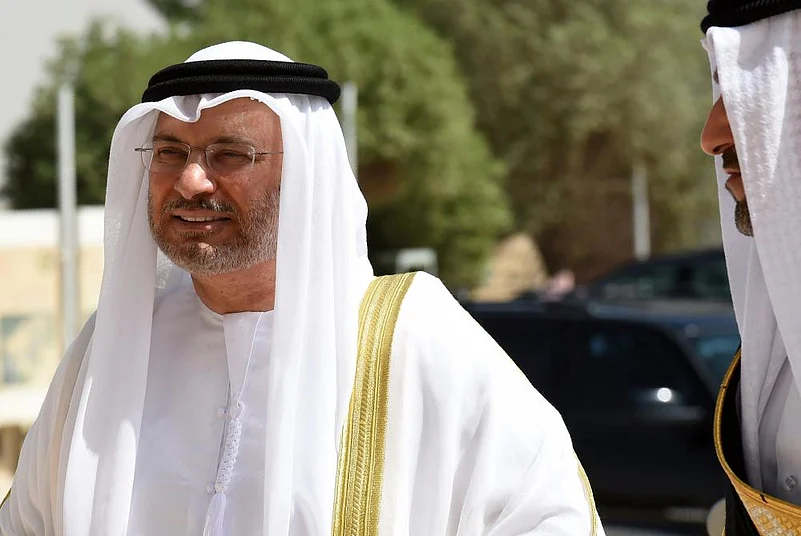India has enjoyed traditionally warm and strong ties with the United Arab Emirates (UAE), home to more than 2.5 million Indians. Over the past several months there has been an upswing in bilateral ties, especially since PM Narendra Modi’s visit to the country in 2015 when the two sides entered into a Strategic Partnership. This year the Crown Prince of UAE and the Deputy Supreme Commander of the Emirates Armed Forces, Sheikh Mohammed bin Zayed Al Nahyan will be the Chief Guest of the Indian Republic Day celebrations. The Minister of State for Foreign Affairs, Dr Anwar Gargash, is one of the best known faces and perhaps, one of the most articulate leaders in the UAE government. A PhD from UK’s King’s College and a graduate of Political Science from the US’s George Washington University, Gargash joined the government in 2006 after a decade long stint in the UAE University faculty. In this interview with Pranay Sharma, he spoke about the growing India-UAE ties, the ongoing wars in Syria and Yemen, the challenge posed by the Islamic State and UAE’s relations with Iran. The interview:
Advertisement
It has been a year since India and UAE entered into a strategic partnership. How has it progressed so far?
We announced the strategic partnership over a year ago and on 26 January, during Sheikh Mohamed bin Zayed’s visit to India for the Republic Day celebrations, we will sign an agreement that enshrines this commitment. It has been a busy first year for our strategic partnership. Senior government officials of the two countries have talked to each other on a regular basis, to understand each other’s perspectives and benefit from each other’s insights. Last week, we had the first meeting of the UAE-India Strategic Dialogue, which is an important forum for promoting cooperation that we have recently established, and which I co-chair with my counterpart, Minister of State for External Affairs Shri M.J. Akbar. We had a very constructive and productive first session, and I am confident that this will be a very successful initiative in the longer term.
Advertisement
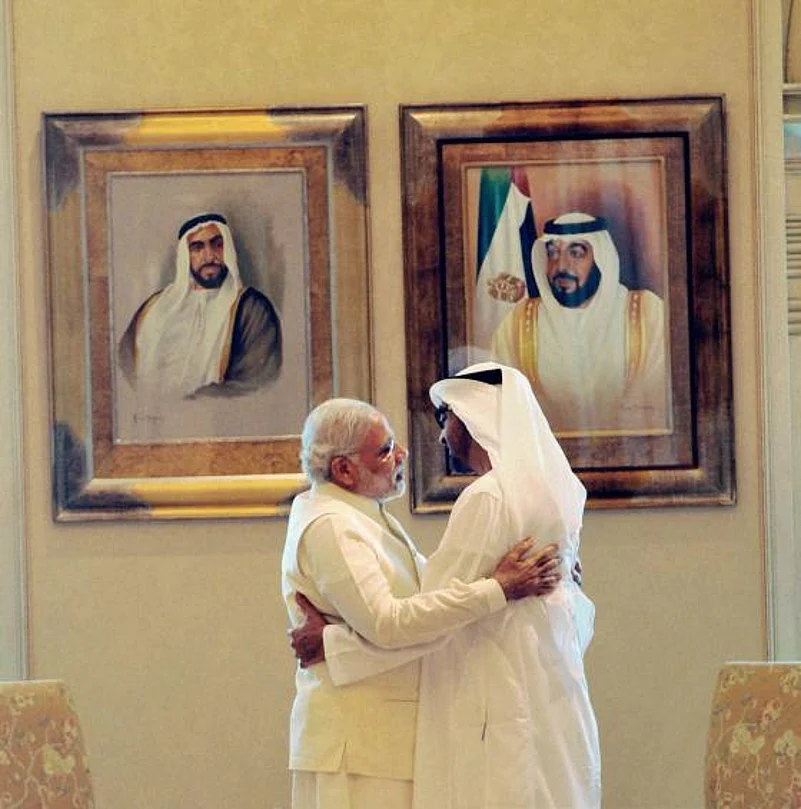
What areas are there for you to focus on?
We have an ambitious economic agenda and continued to advance it in various areas. We see eye to eye on a number of other issues of critical interest to our countries, such as the need to enhance cooperation in the fight against terrorism, defense, security, and space. We have been working to advance cooperation in these areas too over the last year, and we believe it will provide significant benefits to not only both countries, but also to the wider region.
In terms of investment from UAE and India, especially in the infrastructure sector, has there been any forward movement so far?
When Prime Minister Modi visited the UAE in August 2015, we announced our intention to invest up to 75 billion dollars in infrastructure projects in India. We also pledged to increase our bilateral trade by 60 percent over the next five years. Our current investments in India amount to about 10 billion dollars, including 3.5 billion dollars in foreign direct investments, so we do have some work to do to reach our common goals.
What about investment in infrastructure?
With regard to investments in infrastructure, during Sheikh Mohamed bin Zayed’s visit to India in February 2016, we signed a MoU that aims to establish an institutional framework to facilitate the participation of investors from the UAE in infrastructure projects in India. We have also established a working group, which is essentially an organized way for investment authorities of UAE and India to meet and review projects and progress. The working group met for the first time in November last year, and we have done a significant amount of work since then. It is however, important to set up the right institutional frameworks and working mechanisms and we have achieved this now.
Advertisement
The Crown Prince of Abu Dhabi will be in India as chief guest for the 2017 Republic Day celebrations. What does it signify in terms of bilateral ties?
The presence of Sheikh Mohammed bin Zayed as the Chief Guest of India’s Republic Day celebrations this year is an honor and acute appreciation of the bilateral link. It is also a significant opportunity for our countries to continue to build on what we achieved during Prime Minister Modi’s visit to the UAE in August 2015, and during Sheikh Mohamed bin Zayed’s visit to India in February 2016.
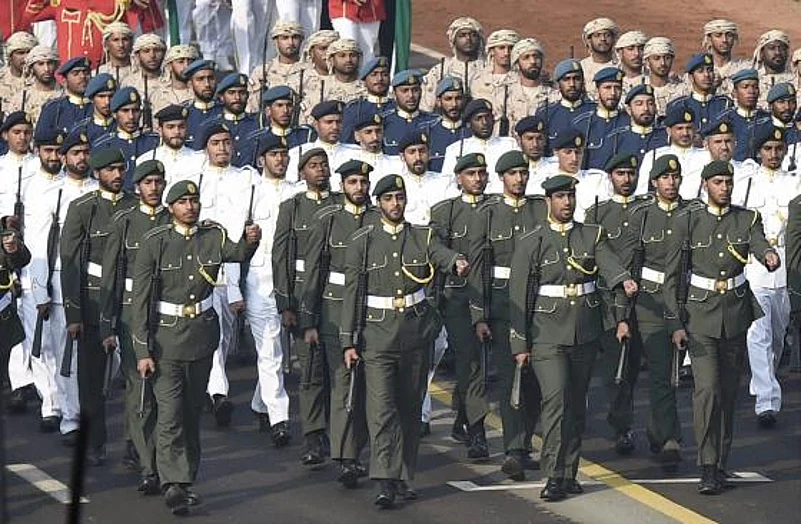
What will be the likely focus of discussion between the two leaders?
Advertisement
It is a chance for our leaders to discuss shared agendas in trade and investment, energy, support for regional stability, and other areas of priority. These steps are critical because the UAE sees India as one of its most important partners. India is the UAE’s largest trading partner, and there is a community of 2.5 million Indians living and working in the UAE. However, as important as these bonds are, we wanted our relationship with India to go beyond economic ties and people-to- people links. We wanted it to move forward in a strategic direction. Our governments and leaders have played an important role in driving the relationship towards a strategic partnership, and they continue to do so.
Advertisement
Defense is an emerging area of cooperation between the two sides, how are they panning out?
We have made important progress on security and defense cooperation. In recent years we have expanded cooperation in the fight against terrorism. We have much to learn from one another. Our military forces are participating in joint training exercises, and we believe we can expand cooperation in this area in the future, mainly in the naval field. In our discussions during the first meeting of the Strategic Dialogue we focused in depth on how to increase defense and security cooperation, both of which are priorities for our countries.
Advertisement
The positive intentions notwithstanding, doing business in India has not been easy for many foreign investors. What has UAE’s experience been like so far?
India is an attractive and dynamic destination for foreign investment and UAE investors are motivated by the Indian Government’s efforts to create an attractive climate for foreign investment. There was also increased enthusiasm following an agreement on the protection of investments, which the UAE and India signed in December 2013. Our investors report that India still has a certain amount of bureaucracy, but also a massive amount of opportunity. We understand that delays and a certain amount of bureaucratic hurdles are inevitable given India’s size. At the same time, we are keen to fulfill the significant amount of potential in expanding our trade and investment relations, and we are working with the Indian Government on understanding where the complications are and in solving them along the way.
Advertisement
India sees Pakistan as a ‘state sponsor of terrorism,’ and now other countries in the region have started airing their concerns about that. As a country that is committed to fight terrorism in all its forms and also as one that is a friend of Pakistan, how does UAE see these developments? Does it also have some advice for Pakistan?
The UAE has taken a very principled stand in the fight against terrorism. We strongly condemn any terrorist attack, no matter where it happens in the world and who the perpetrators are. I cannot emphasize this strongly enough: terrorism is terrorism. There are no ‘gray areas’. Terrorism cannot be abetted in any form, and we all need to stand united in what has now become a global fight against terrorism. We are also highly aware of the close link that exists between extremism and terrorism, and we have worked hard to create a convincing vision in our country that demonstrates that extremist narratives offer no future to anyone.
Advertisement
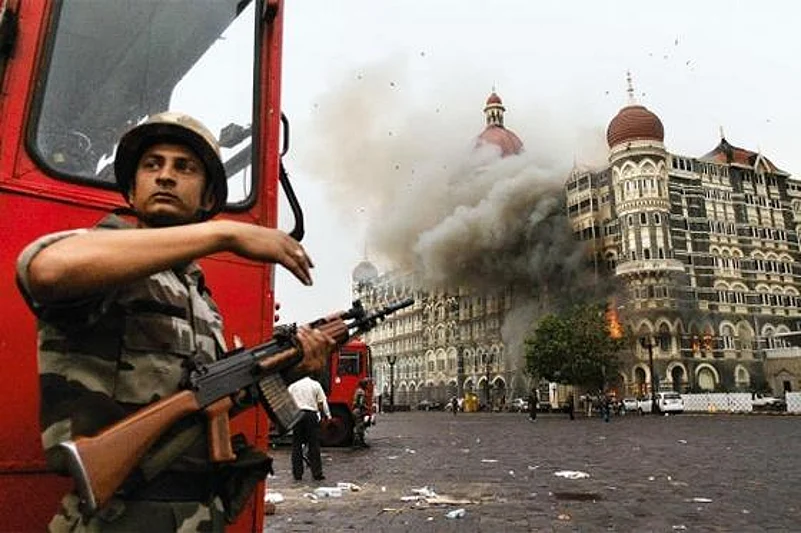
And is that working?
Unfortunately, we can say with almost certainty that the fight against terrorism in the region and beyond will continue for a long time. Regarding Pakistan, we believe that Pakistan has itself suffered at the hands of extremists, and has a key role to play in the fight against terrorism. It is essential for the international community to continue to explore areas for cooperation with Pakistan on counterterrorism.
UAE continues to have a major grouse over Iran’s “occupation” of three of its islands. Does this signify Iran’s expansionist tendencies?
The UAE shares significant historical, geographical and economic connections with Iran and its people. We have always sought a cordial relationship with Iran, underpinned by strong commercial links. However, this relationship has been challenged most strongly by Iran’s 1971 military occupation of the UAE islands of Abu Musa and Greater and Lesser Tunb, which are historically part of the UAE. Although the UAE has repeatedly sought to resolve this dispute peacefully, having proposed both negotiations and accepted legal and institutional processes of international dispute resolution, Iran has consistently rejected these overtures, responding instead with numerous provocations, which have eroded trust between the UAE and Iran. The continued military occupation of the three islands is a clear and irrefutable violation of the UAE’s sovereignty, and does little to assuage fears that Iran is seeking to expand its influence, both territorially and ideologically throughout the Arab region.
Advertisement
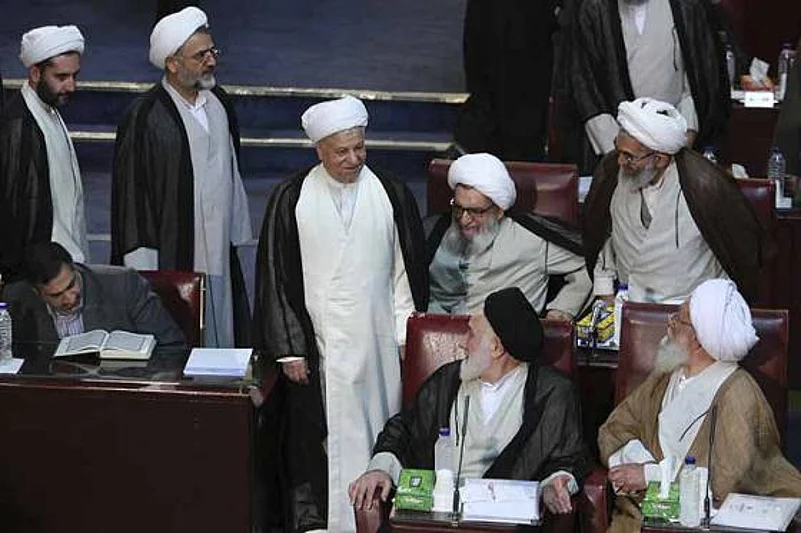
Do you see Iran as one of the main reasons for instability in West Asia today? Or do you think it also has the potential to play a role in stabilizing in the region?
It is critical that Iran ceases its meddling in the affairs of Arab states, and its funding and support of instability in the Arab world, including Yemen, Bahrain, Lebanon, Iraq, and Syria amongst others. It is clear that Iran’s role in West Asia has been far from positive, and its influence has created disorder rather than stability. It is essential that Iran take steps to act as a constructive player in the region.
Advertisement
Is it playing that role?
At present we do not really see any sign of change in Iran’s regional behaviour; in fact we see quite the opposite. We would like Iran to play a greater role in ensuring stability in the region, but it first needs to build trust and dialogue with its neighbours. At the very fundamental level this trust and dialogue cannot emerge unless Iran respects the sovereignty and territorial integrity of Arab states, and ceases all efforts to export its revolution, as well as its claims of authority of Shia communities in other Arab countries. In other words, Iran must act as a state rather than an exporter of revolution and instability.
Advertisement

Many observers see the failure of a peace agreement in Syria and the ongoing war in Yemen, a country where UAE troops are also involved, as two major factors for instability in West Asia. Do you share that view?
This is still a difficult time for our region, and this year looks set to be a continuation of what we have seen in previous years, with ongoing uncertainties: from the appalling situation in Syria, to the fight against Daesh and other extremist groups, to concerns about Iran’s role in the region, to the crises in Yemen, Iraq, Libya and Afghanistan. Many of these crises will take a long time to resolve and require concerted efforts from the international community. The UAE has consistently and constructively tried to explore political solutions to these various crises and will continue to do so in the future.
Advertisement
What role does the UAE play?
The UAE does not seek greater regional responsibilities for itself, in some cases, such as Yemen, these were thrust upon us. In order to move these various crises--mainly Yemen and Syria-- towards a solution, it is important for all like-minded countries to work together in partnership and with the best interest of the citizens of these countries in mind.

Is negotiated settlement in Yemen a possibility that can be realized soon or is war the only way out?
A political solution, achieved by way of the UN-led political process is the only means by which the war in Yemen will end. It is not only incorrect to say that war is the only way out, because war is not a way out at all. This has been the message conveyed by the UAE to all parties involved for some time, and continues to be the message that the UAE conveys. This is also the message of the coalition. The reason for this is simple: a negotiated settlement is the only way in which the interests of all involved can be realized and further coordinated into something that induces all parties to put down their arms.
Advertisement
Is there a formula available to achieve this?
The proposal made by the UN Special Envoy to Yemen, Ismail Ould Cheikh Ahmed, is already very reasonable: it provides details on political and security steps that form an outline for a more comprehensive agreement that will need to be finalized in negotiations. So we already have an outline for a settlement that could realistically bring peace.
But how can this be achieved?
Whether a full-fledged and negotiated settlement will be realized soon or not depends on the Yemeni parties involved. The UAE wishes to see peace in Yemen as soon as possible and is working to make this a reality. But its efforts are frequently stymied by the actions of Iran and the Houthis.
Advertisement

Why do they scuttle such efforts?
Iran continues to send arms in support of the Houthis – a group whose legitimacy the international community has rejected over and over in UNSC resolutions 2216 and 2231. The Houthis meanwhile, continue to engage in behavior that only escalates the war in Yemen, rather than making the difficult but necessary steps towards peace. They frequently use ceasefires to rearm, undermining the ever-important trust required for negotiations. In November, they announced a unilateral formation of a government in Sana. This was less than two weeks after they also announced their willingness to form a national unity government through negotiations. It is this kind of duplicitous behavior that not only delays peace, but also makes it all the more difficult to attain.
Advertisement
So what is the scenario now?
The Yemeni people are suffering under a humanitarian catastrophe while the Al Qaeda in the Arabian Peninsula, and more recently, Daesh, are given the conditions in which both can flourish. The UAE and the coalition are making every effort to deal with both situations: we are fighting those terrorist groups, and are providing extensive humanitarian assistance. But we are also aware that only peace will create the space for sustainable solutions. We therefore reiterate our call for Yemeni parties to seriously commit to the political process and for Iran to halt its support of the Houthis. This is the only way peace will be realized.
Advertisement
India has high stakes in West Asia. Do you see a bigger role for it in the region?
We believe that India is a major power, globally and regionally. We also believe that some of the issues facing the Middle East today are global in scope. The UAE is open to working with all partners, including its strategic partner India, in resolving the instability currently being seen in our region. Ultimately however, it is of course up to India to determine the role it wishes to play in the region.
The Islamic State has today become synonymous with global terrorism. How big a challenge is it for UAE, especially the attraction it seems to have among youngsters in various parts of the world?
Advertisement
The UAE strongly condemns the so-called Islamic State, or Daesh, which is neither Islamic nor a state and runs counter to the deeply-held values and beliefs on which the UAE was founded – tolerance, moderation, pluralism and openness. Daesh’s hateful and twisted ideology represents a particular danger to our open society, which it seeks to exploit in order to prey on those that are most vulnerable, including our youth. The UAE has been at the forefront of the fight against Daesh, together with its partners of the Global Coalition to counter Daesh, and is committed to stamping out its hateful legacy.
Advertisement
Is Daesh the symptom or the problem itself?
For all its vileness, Daesh is only the most severe symptom of a much wider problem, represented by the spread of extremist ideologies across the region. This rising extremist tide poses a dire challenge to our values and way of life. The UAE has been directly affected by extremists attempting to further destabilize Yemen, and most recently in Afghanistan, where five of our diplomats were killed in a bomb attack while on a humanitarian mission.

How do you deal with such a threat?
Countering this threat requires a comprehensive approach that fuses counter-terrorism, law enforcement and measures to promote resilience. Examining how a society teaches religion is also vital to combat this threat. The methodology that the UAE has adopted is testament to the moderation embraced by our society, where discrimination, whether based on race or religion, is prohibited.
Advertisement
And how do you implement it?
The UAE’s model of good governance directly addresses social, economic and other forms of grievances that Daesh seeks to exploit. We also play a role in a number of regional and global initiatives. The UAE hosts Hedayah, the first-ever International Center of Excellence for Countering Violent Extremism, and operates the Sawab Center, a joint initiative with the US that focuses on countering Daesh propaganda and recruitment online. The UAE also supports moderate religious voices in the region through initiatives such as the Forum for Promoting Peace in Muslim Societies, and the Muslim Council of Elders, and will continue to counter the threat of extremism locally, regionally and globally.






